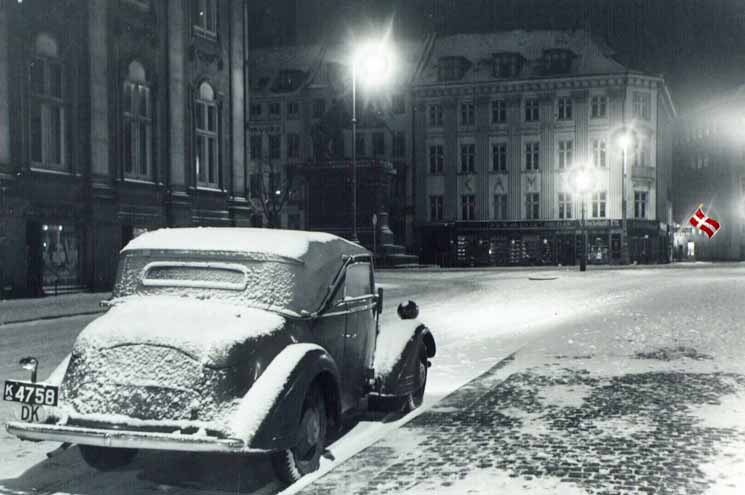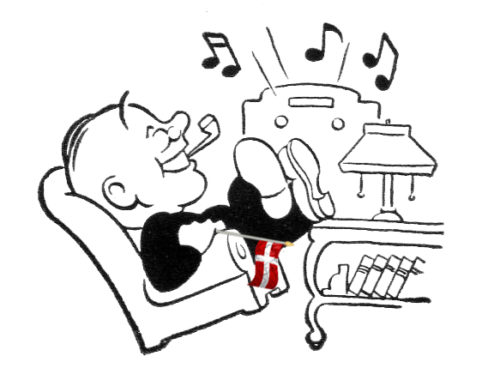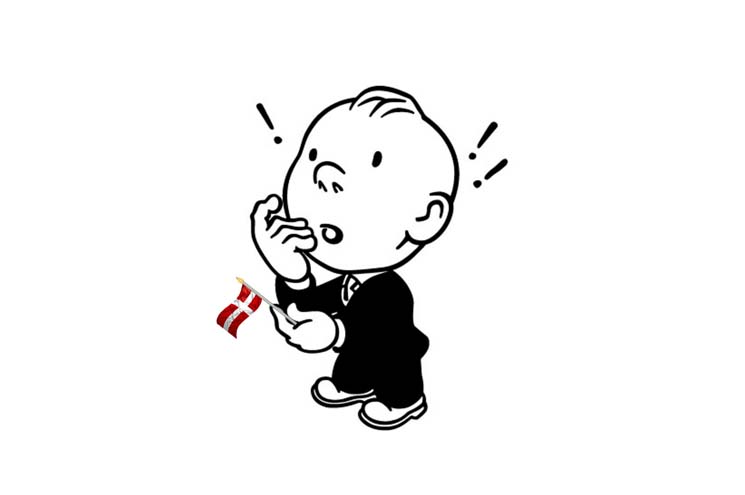Travel brochures usually talk about the sights and the smells and the tastes of a new place, but they don’t always talk about the sound of a place. Denmark has a sound, a default sound. And that sound is quiet.
Denmark is a quiet country, even within the cities. Especially this time of year, February, when it’s too cold to do anything but scurry from place to place, when the street cafés are closed and no one wants to eat their lunch in the park. The Danes are hibernating in their homes until the spring.
And especially when a blanket of snow covers the cities and countryside. Then everything around you will be beautifully, peacefully, totally quiet.
This Danish quiet can freak out a lot of internationals when they first arrive. If you’ve read my first book, you’ll know I tell the story of a refugee who’d just arrived in Denmark from Cairo, Egypt, and he asked another more established refugee to show him downtown Copenhagen.
The established friend took him to Strøget at, like, 9pm on Tuesday night in February, and the refugee was like, this is not a city! There’s no one here! He accused his friend of tricking him.
But it was the city. It was the capital city. And it was quiet.
“Stille og roligt”
The Danes have a lot of respect for quiet. If you ask a Danish friend how things are going in his life, he’s likely to say “Ah, stille og roligt.” Which Google Translate renders as “Quiet and quiet.” (‘Nice and easy’ is another translation)
Quiet is written into the laws in Denmark – car horns are rarely heard, for example, because it’s against the law to use them unless you are in immediate danger. I learned to drive in Manhattan, where you use your horn every 3 or 4 seconds, so this was a big change for me.
Church bells are only allowed to chime at certain times of the week. And most trains in Denmark – local S-trains and national – have a silent car. If you choose to sit there, you are not allowed to make any noise at all.
Come to Denmark and be quiet
When you come to Denmark, you are expected to live your life in a quiet way. One of the things I tell newcomers at my Welcome to Denmark speeches is that they should try to never raise their voice – even if they’re angry.
This is a flat country, with a flat hierarchy, and it’s important to keep a flat, composed tone. When the Danes are angry they get direct – and sometimes they get pretty insulting – but they don’t get loud. If you’re subject to heated fits of temper, you’ll be written off as that crazy foreigner that nobody can trust.
Interestingly, foreigners who have been here for awhile tend to police the newcomers. We had one in the Americans group on Facebook the other day saying, “Can’t you people tone down your loud voices when you’re in Denmark? It’s so embarrassing!”
He wasn’t wrong: you do hear loud Americans and many other types of foreigners being a little bit too noisy in public, particularly on their phones. On trains and buses you’ll hear internationals from many different places having lively phone conversations in their own languages while the Danes sit silently and glower at them.
Noise from the neighbors
Of course, there are occasions where the Danes can be loud too. The Danish national passion is fixing up one’s home or apartment, so any type of sawing or banging or buzzing connected with this is considered totally necessary and just something the neighbors will have to put up with.
The same is true for gardening noise – mowers and clippers and electric tree saws and such.
And there are some types of parties that are allowed to be noisy. The annual student wagons that drive around in June with teenagers who have just finished their schooling are extremely loud, with music and whistles and air horns.
The noisy birthday party
Your neighbors may also plan a loud all-night party from time to time, usually on a ‘round’ birthday like 20 or 30 or 40, and if you live in an apartment building, they may put a sign in the hallway warning you in advance so you can buy earplugs or stay at a friend’s.
Just a side note – these signs in the hallway often say, “We’re having a party – sorry about the noise, feel free to stop by and join us.” They don’t really want you to do this. The idea is that if you’re invited, you won’t complain about the noise. But this can be misunderstood by internationals.
A friend told me about some very sweet Chinese girls who thought this sign meant they were really invited to their neighbor’s party. They showed up beautifully dressed, and then there wasn’t enough food for them. Major cultural embarrassment for the Danes.
Danes are loud outside Denmark
At any rate, Denmark is generally a quiet place, and Danes are generally quiet when they are in Denmark. When they’re outside Denmark, not so much.
Anyone who travels during the school holidays will have had the experience of being in Budapest or Tokyo or Texas and feeling very far from Denmark and then suddenly hearing something like, “Far? Hvad synes du om det her? Er det ikke meget pænt?”
Danes love to travel, you will find them everywhere, and when Danes go abroad they are not always quiet. This is partly because they often believe that Danish is a secret language that can be understood by no one but themselves, and they can say whatever they want as loud as they want in total privacy.
Of course, it doesn’t always work that way. An old boss of mine told me of landing in the airport in Chicago, in the US, and finding himself on the escalator behind a lady with…a large backside.
He turned to his companion and said, in Danish of course, “Now we’re in the land of the big butts.”
The lady turned around, smiled, and said in Danish, “This big butt comes from Denmark.”
After an experience like that, one might want to go back to being quiet.
.
Buy Kay’s books about Denmark on Amazon, Saxo, Google Books, Apple Books, Barnes & Noble Nook, or via our webshop.
Photo by Sven Türck via the Royal Danish Library. Image mashup copyright Kay Xander Mellish 2025
Read also:
Ørestad, Øresteds, Øresund: Why I still get lost in Denmark





